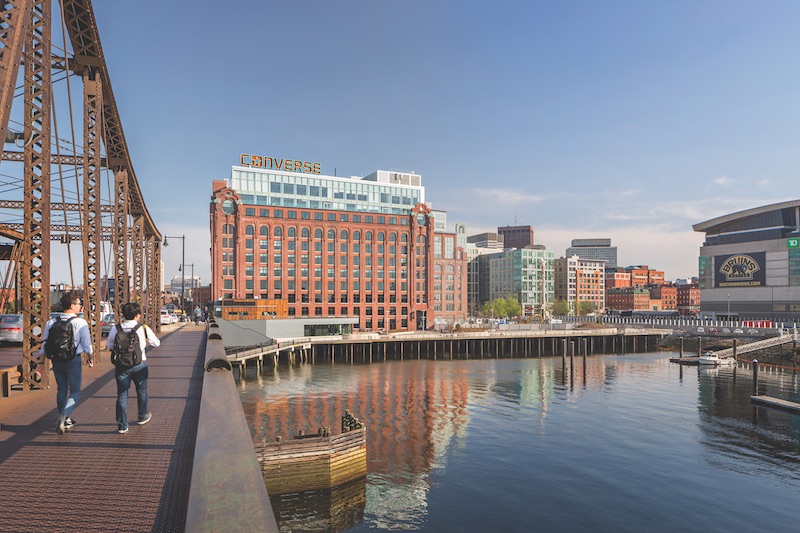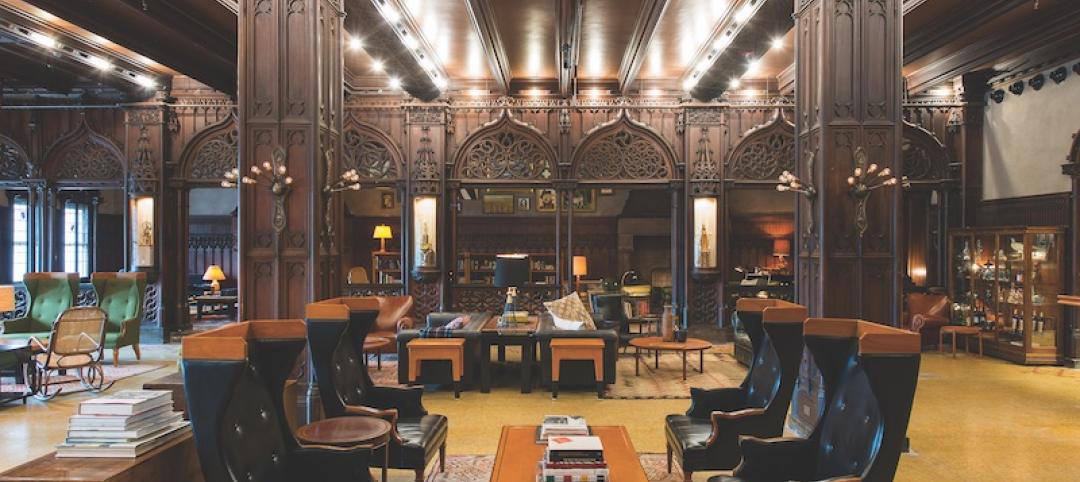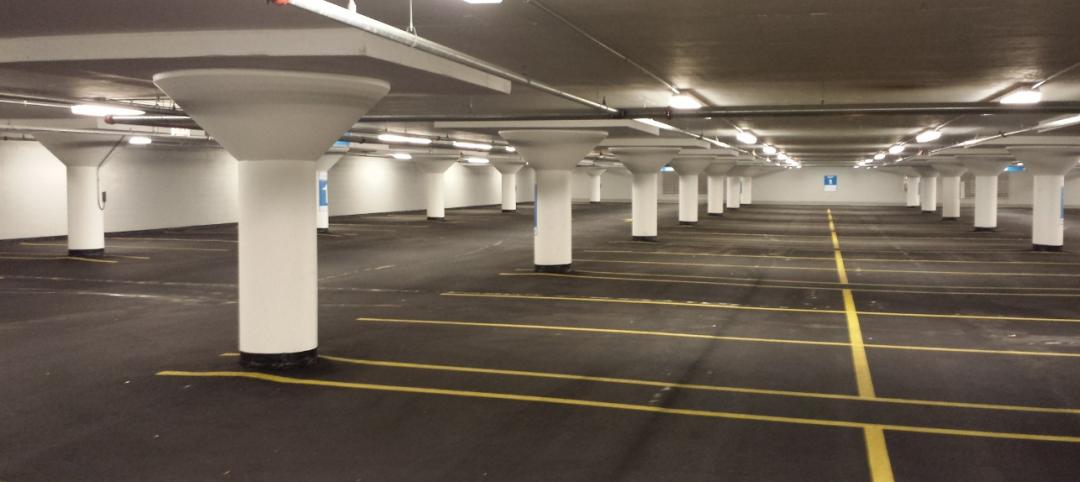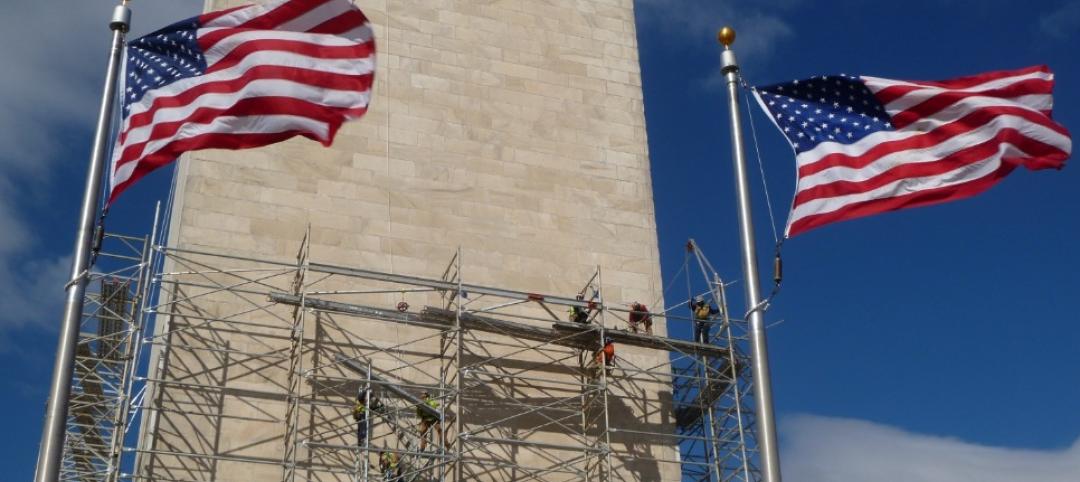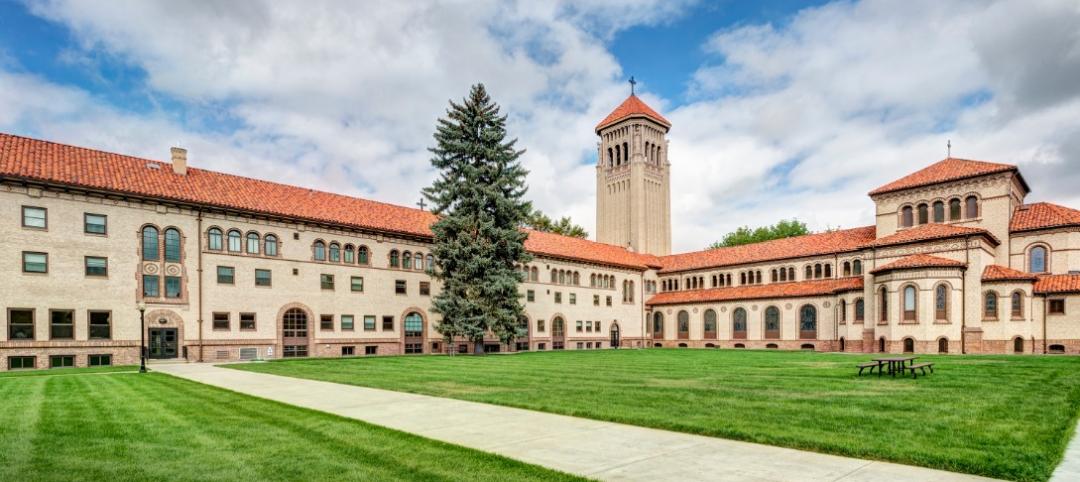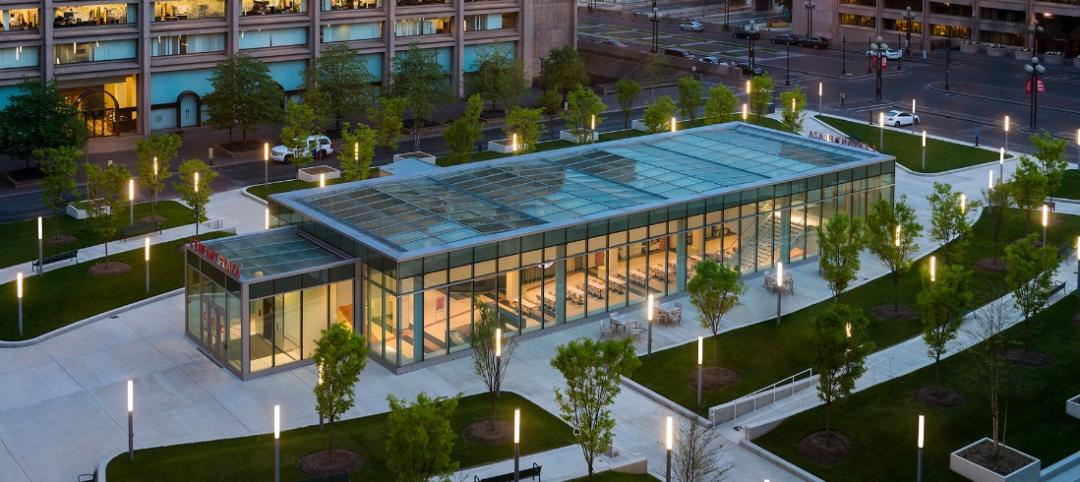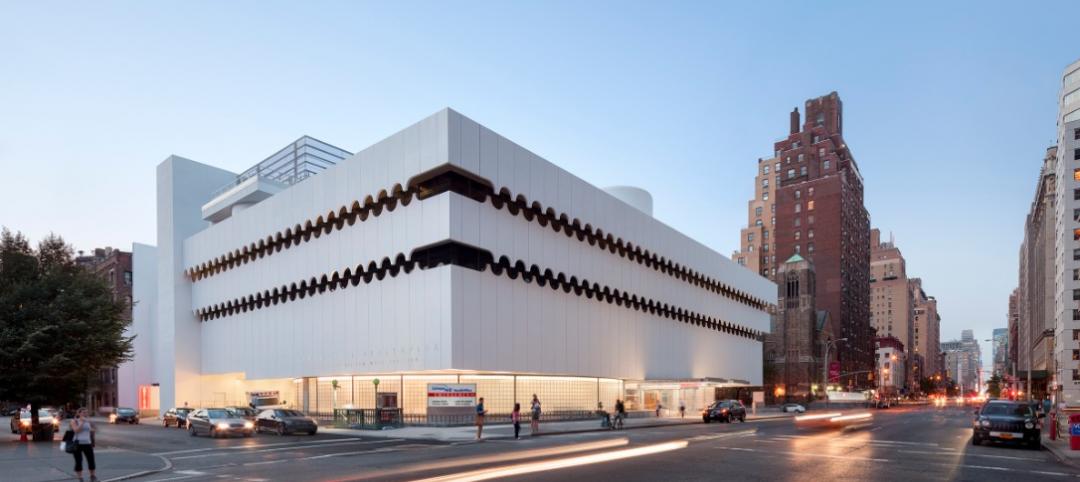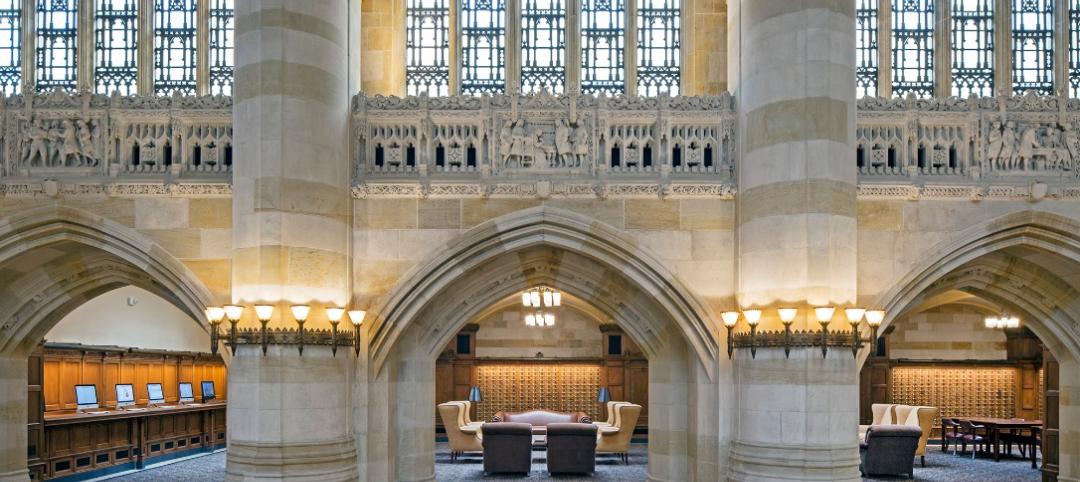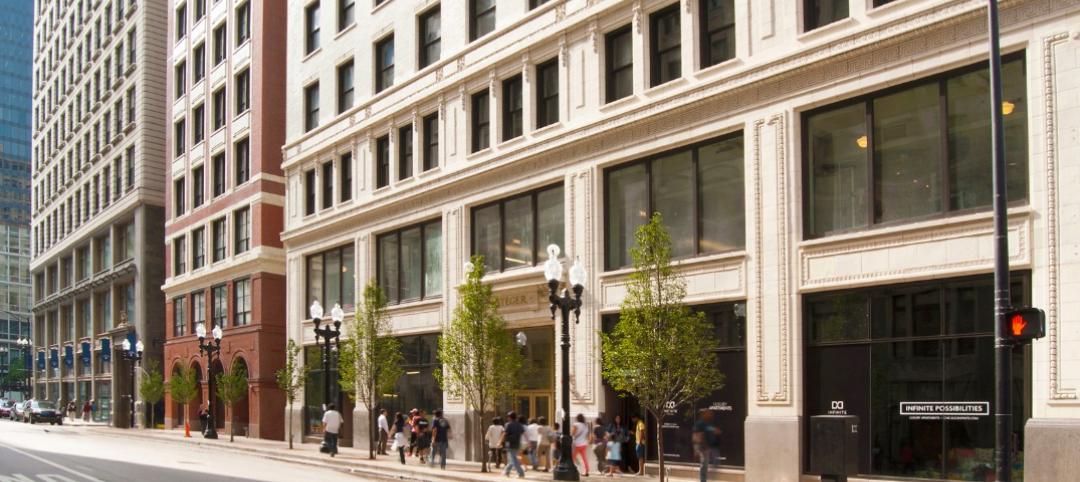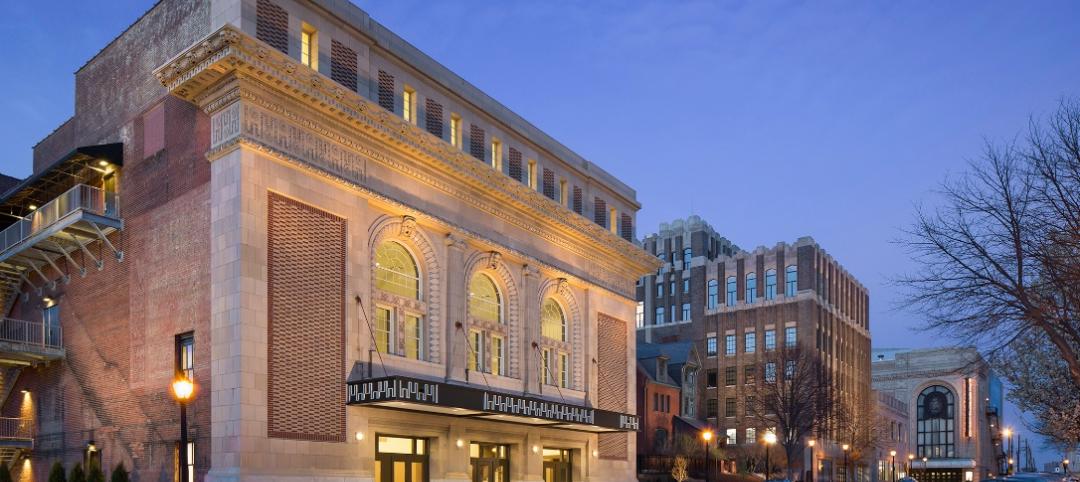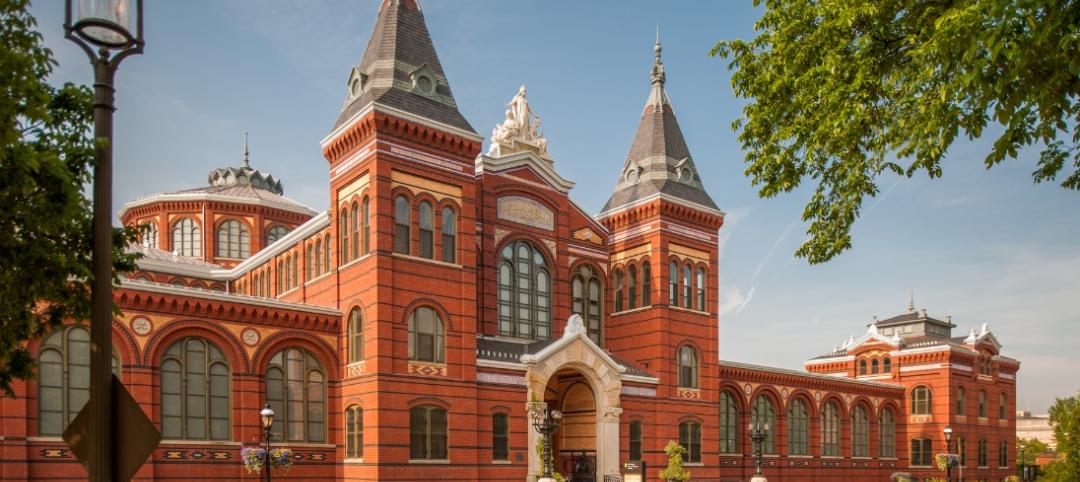The Architectural Team (designer) led the conversion of Boston’s Hoffman Building, a 1906 confectionary manufacturing facility (later a submarine battery plant), and a dilapidated wharf into a mixed-use office/retail complex for client Related Beal.
The team had to comply with Boston’s Article 80 Large Project Review, master plan requirements set by the Boston Redevelopment Authority, and the city’s long-standing goal of created a continuous Harborwalk along the water’s edge.
After demolishing the rotten wood wharf, Suffolk Construction (GC) built a new 30,000-sf landscaped quay, now known as Lovejoy Wharf. It is home to a two-story music studio, a public entertainment venue, and 7,000 sf of retail. The Hoffman Building is now the world headquarters of Converse Inc., the retro sneaker maker.
It took a year to dry out and waterproof the basement of the Hoffman Building.
The top two floors were found to be structurally unsound; they were replaced with a brick-clad story and two floors in glass and structural steel. Wood reclaimed from the old wharf, polished concrete floors, and exposed columns added to the “industrial heritage” of the finished structure.
PROJECT SUMMARY
Silver Award Winner | Boston, Mass.
Building Team: The Architectural Team (submitting firm, architect); Related Beal (owner); Jennifer Carpenter Architect (interior architect); McNamara Salvia (SE); AHA Consulting Engineer (MEP); and Suffolk Construction (GC/CM).
Details: 220,000 sf. Construction cost: Confidential. Construction time: December 2012 to April 2015. Delivery method: Design-bid-build.
Related Stories
Reconstruction Awards | Nov 11, 2016
Exclusive Chicago club re-emerges as a boutique hotel
Built in 1893 for the World’s Columbian Exposition, the CAA was an exclusive social club founded by leading figures in American sports and commerce.
Reconstruction Awards | Dec 1, 2015
Massive Chicago parking garage gets overdue waterproofing
Millennium Lakeside Garage, the largest underground parking facility in the U.S., hadn’t been waterproofed since the 1970s. The massive project took nearly 2½ years and 33,554 man-hours.
Reconstruction Awards | Nov 30, 2015
Washington Monument restored after 2011 East Coast earthquake
This restoration and repair project, which was completed under budget and eight days early (despite several setbacks), involved re-pointing 2.5 miles of mortar joints, repairing 1,200 linear feet of cracks, and installing 150 sf of Dutchman repairs. Construction took place from November 2011 to May 2014.
Reconstruction Awards | Nov 30, 2015
Denver's 107-year-old seminary campus modernized
The scope of the project included the seminary dorms, library, and chapel, all of which posed their own set of obstacles.
Reconstruction Awards | Nov 24, 2015
Center of I.M. Pei-designed plaza part of Washington redevelopment
The L’Enfant Plaza, a three-story below-grade mall, was renovated to include a new glass atrium pavilion and a 40-foot-long, interactive LED.
Reconstruction Awards | Nov 24, 2015
Manhattan's first freestanding emergency department a result of adaptive reuse
The Lenox Hill Healthplex, a restoration of the Curran O’Toole Building, has glass-block walls and a carefully preserved exterior.
Reconstruction Awards | Nov 19, 2015
Nave restored at Yale’s Sterling Memorial Library
Turner Construction and Helpern Architects revived the 150-foot-long nave, which was embellished with stained glass windows by G. Owen Bonawit, stone carvings by René P. Chambellan, and decorative ironwork by Samuel Yellin.
Reconstruction Awards | Nov 19, 2015
Infinite Chicago redevelopment bridges past to present
The renovation of three historic downtown buildings—the Gibbons and Steger Buildings and Pickwick Stables—includes a multi-level concrete walkway connection.
Reconstruction Awards | Nov 18, 2015
Sun Theater serves the youth of St. Louis
Lawrence Group and property owner TLG Beaux Arts raised $11 million to restore the 26,000-sf theater into a modern performance venue.
Reconstruction Awards | Nov 17, 2015
Smithsonian Institution’s Arts and Industries Building again an exposition and museum space
After removing decades’ worth of unfortunate additions to expose 17 historic interior spaces for the National Historic Landmark, the Building Team zoned in on the client’s key concern.


